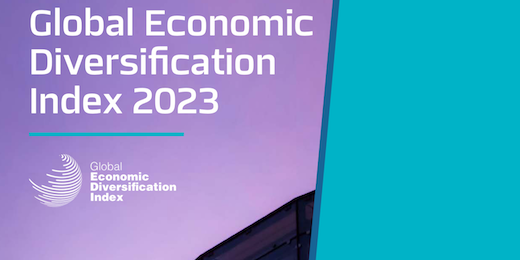Dr. Nasser Saidi’s comments appeared in an Arab News article titled “Saudi Arabia’s economic diversification thrives amid global uncertainty” published on 26th August 2023.
The comments are posted below.
Despite market volatility, Nasser Saidi & Associates — an economic and business advisory consultancy led by a Lebanese politician and economist who held roles as minister of economy and industry and vice governor for the Lebanese central bank— reveals that from 2000 to 2019, notable improvements in Economic Diversification Index scores are seen in countries such as China, the US, Saudi Arabia, Germany, and Oman.
Additionally, GCC nations, excluding Bahrain, rank among the top 20 countries that have advanced their EDI scores during this timeframe.
While Saudi Arabia ranks among the nations experiencing rapid EDI growth, it’s important to note that its journey started from a relatively modest base, notes Saidi.
The Kingdom’s earlier limited level of diversification implies that its pace would outstrip that of already highly diversified economies, he explains.
“There is a process of convergence toward highly diversified economies. We can expect this trend to continue.”
Saidi emphasizes that the improvement of Saudi’s EDI score is not surprising, given the conscious effort to expand the non-oil private sector’s contribution to the GDP — a pivotal component of the diversification strategy supported by economic policies.
“On the output side, diversification away from oil has benefitted from the size of the country as well as having relatively closed sectors although with relatively low levels of tariffs,” he says.
While Saudi Arabia’s economic diversification model is reaping notable benefits and success, oil still remains a dominant source of Saudi export and fiscal revenue, directly accounting for over 40 percent of its GDP, according to a report by the IMF in 2022.
“With respect to trade, oil is still the prominent commodity the Kingdom trades, however, being an international commodity, it is traded with a large, diversified set of nations (offering some buffer in case a few of the major trade partners’ growth/ demand weakens),” explains Saidi.
However, as we look forward, the question arises: how can Saudi Arabia’s economic diversification model sustain its fruitful trajectory?
According to Saidi, Saudi investments in sectors like mining and metals, along with hospitality and tourism, including religious, cultural, and historical, “seem most likely to reap benefits.”
Additionally, there has also been the introduction of revenue-enhancing measures. These include measures such as value added tax at a comparatively higher rate of 15 percent compared to other GCC nations, along with excise and legislated taxes on specific goods and services at purchase.
These additions, explains Saidi, “have enabled the country to move away from the procyclical nature of government revenue that was evident in the past, tracking oil’s boom-bust cycles and leading to pro-cyclical fiscal policies.”
Saidi emphasizes that for Saudi Arabia, the continuation of fiscal consolidation efforts is vital, which includes implementing revenue-enhancing measures. As the country strives to attract regional headquarters to relocate to Riyadh, he says it would be interesting to see how the corporate taxation efforts are molded.
Further expansion of economic diversification opportunities can stem from the clean energy sector, particularly as the Kingdom advances its initiatives toward achieving net-zero emissions by 2060.
“The clean energy sector has much potential for growth — the nation could even export electricity generated from solar power via an interconnected grid all the way to Europe and/ or South Asia,” he states.
“In my view Saudi will emerge as a new energy powerhouse during this decade, building on its comparative advantage in solar power and exporting ‘green electricity’ and hydrogen,” Saidi concludes.






